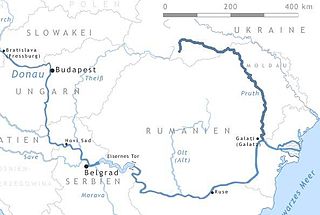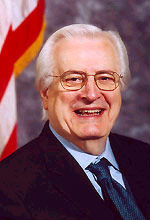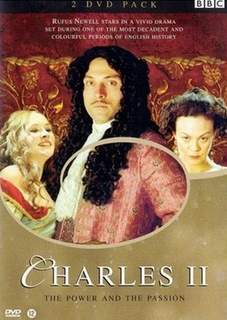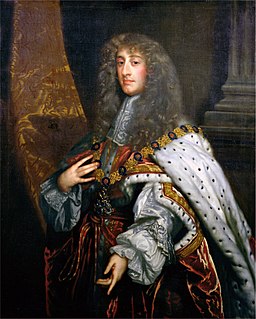
1711 (MDCCXI)
was a common year starting on Thursday of the Gregorian calendar and a common year starting on Monday of the Julian calendar, the 1711th year of the Common Era (CE) and Anno Domini (AD) designations, the 711th year of the 2nd millennium, the 11th year of the 18th century, and the 2nd year of the 1710s decade. As of the start of 1711, the Gregorian calendar was
11 days ahead of the Julian calendar, which remained in localized use until 1923. In the Swedish calendar it was a common year starting on Sunday, one day ahead of the Julian and ten days behind the Gregorian calendar.

1671 (MDCLXXI)
was a common year starting on Thursday of the Gregorian calendar and a common year starting on Sunday of the Julian calendar, the 1671st year of the Common Era (CE) and Anno Domini (AD) designations, the 671st year of the 2nd millennium, the 71st year of the 17th century, and the 2nd year of the 1670s decade. As of the start of 1671, the Gregorian calendar was
10 days ahead of the Julian calendar, which remained in localized use until 1923.

Edward Hyde, 1st Earl of Clarendon was an English statesman who served as Lord Chancellor to King Charles II from 1658, two years before the Restoration of the Monarchy, until 1667. He was loyal to the king, built up the royalist cause, and served as the chief minister after 1660. He was one of the most important historians of England, as author of the most influential contemporary history of the Civil War, The History of the Rebellion (1702). He was the maternal grandfather of two monarchs, Queen Mary II and Queen Anne.

Laurence Hyde, 1st Earl of Rochester, was an English statesman and writer. He was originally a supporter of James II but later supported the Glorious Revolution in 1688. He held high office under Queen Anne, who was his sister's daughter, but their frequent disagreements limited his influence.

Henry John Hyde was an American politician, and served as a Republican member of the United States House of Representatives from 1975 to 2007, representing the 6th District of Illinois, an area of Chicago's northwestern suburbs. He chaired the Judiciary Committee from 1995 to 2001, and the House International Relations Committee from 2001 to 2007.
Thomas Preston, 1st Viscount Tara was an Irish soldier of the 17th century. After lengthy service as a mercenary in the Spanish Army Preston returned to Ireland following the outbreak of the Rebellion of 1641. He was appointed to command the Leinster Army of the Irish Confederacy, enjoying some success as well as a number of heavy defeats such as the Battle of Dungans Hill in 1647 where his army was largely destroyed. Like other Confederate leaders, Preston was a Catholic Royalist. He remained in close contact with the Lord Lieutenant the Marquess of Ormonde, and was a strong supporter of an alliance between Confederates and Royalists against the English Republicans.

Charles II: The Power and the Passion is a British television film in four episodes, broadcast on BBC One in 2003, and produced by the BBC in association with the A&E Network in the United States. It was produced by Kate Harwood, directed by Joe Wright and written by BAFTA Award-winning screenwriter Adrian Hodges, whose credits include David Copperfield and The Lost World.

The Marian Exiles were English Protestants who fled to the continent during the 1553 - 1558 reign of the Roman Catholic Queen Mary I and King Philip. They settled chiefly in Protestant countries such as the Netherlands, Switzerland and Germany, and also in France, Italy and Poland.
The English College, was a Catholic seminary in Douai, now in France, associated with the University of Douai. It was established in about 1561, and was suppressed in 1793. It is known for a Bible translation referred to as the Douay–Rheims Bible. Of over 300 priests from Douai sent on the English mission, about one-third were executed. The dissolution of the college at the tie of the French Revolution led to the founding of Crook Hall and St Edmund's College, Ware. It is popularly believed that the indemnification funds paid by the French for the seizure of Douai's property were diverted by the British commissioners to complete the furnishings of George IV's Royal Pavilion at Brighton.

James II and VII was King of England and Ireland as James II and King of Scotland as James VII, from 6 February 1685 until he was deposed in the Glorious Revolution of 1688. The last Roman Catholic monarch of England, Scotland and Ireland, his reign is now remembered primarily for struggles over religious tolerance. However, it also involved the principles of absolutism and divine right of kings and his deposition ended a century of political and civil strife by confirming the primacy of Parliament over the Crown.
Events from the year 1819 in Ireland.
Events from the year 1671 in England.

Regina Coeli Church is a Roman Catholic church that was founded in 1862 in Hyde Park, NY. It includes St. Paul's mission chapel in Staatsburg, New York.
Events from the year 1654 in Ireland.
The Chapel of St. Paul is a Roman Catholic parish church under the authority of the Roman Catholic Archdiocese of New York, located in Staatsburg, Dutchess County, New York. It was established in 1887. It is a mission chapel of Church of Regina Coeli in Hyde Park.
Sir Henry Hyde (c.1605–1650) was a Royalist diplomat beheaded by the Parliamentarians, for acting as an envoy for the soon-to-be exiled King, Charles II of England.
Edward Hyde (1607–1659) was an English royalist cleric, nominally Dean of Windsor at the end of his life.









